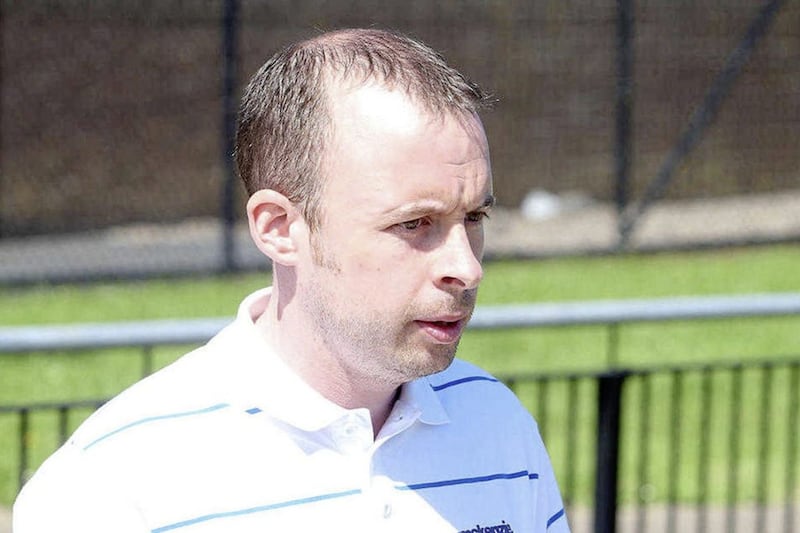OUTSIDE the high-security gates of HMP Maghaberry, the father of a young prisoner who took his life nearly six years ago returned on Wednesday with pictures of his son.
Last week, a jury inquest concluded that remand prisoner Daniel McConville (22) from Lurgan died by suicide on August 29, 2018, but elements including bullying from some prison staff and a lack of appropriate care had contributed to his death.
A practice of not holding a mental health screening in person was criticised along with the management of his anti-depressant medication, which he had handed back the day before his death.
There was also “unsuitable reasoning” for denying him a move to another section of the prison as well as an “unsatisfactory level of care and detail” when opening a SPAR (Supporting Prisoners at Risk) procedure.
Mr McConville was diagnosed with ADHD and had 80 previous convictions, with the coroner Joe McCrisken asking how treatment for neurodivergent prisoners had changed in Maghaberry.
His father Paul and solicitor Owen Beattie are now calling for a public inquiry into the conditions faced by prisoners across Northern Ireland.
- Jury conclude Maghaberry prisoner with ADHD took his own life, but bullying and lack of appropriate care contributedOpens in new window
- Claims that Maghaberry prisoner was bullied by staff before suicide questioned at inquestOpens in new window
- Prison population increases by almost 40% in three yearsOpens in new window
“It’s important for me to be here because this is where my son took his last breath,” he told the Irish News outside Maghaberry.
“I feel being up here, even if it’s once a week or once a month, I feel closer to him.”
He said a public inquiry was needed to ensure those in custody were treated with “human dignity and full respect”.
“We all know they’ve committed crimes, they done wrong. But this is a place where they’ve lost their freedom.
“So the prison staff and the healthcare staff have a duty of care to look after them. You wouldn’t expect anything else, because none of us can judge anybody.
“The judicial system in this country, that’s the judge of the land.”
Despite Daniel’s failings in life, he said: “He was loving son and he loved his children, he was a father, he loved life and he wanted to move on.
“He wanted to get his own restaurant and café. He had these inspirations, we all have these dreams.
“I wouldn’t expect anybody else to go through this, it’s horrible. I don’t want it to happen again.”
He said last week’s inquest verdict had confirmed what he already believed.
“ADHD doesn’t excuse bad behaviour, we all have to learn right from wrong and this is what (the prison service) now have to do.
“They have to put things right. I’ve been told I don’t need to go up to the prison anymore, the fight’s over.
“But the fight’s not over, it’s only getting started.”
Mr Beattie added: “The death of Daniel McConville has exposed concerning conduct on the part of the prison regime. A public inquiry is the only appropriate forum to properly examine the conditions faced by prisoners in the care of the state”
A Northern Ireland Prison Service spokesperson said the inquest findings were being carefully considered.
“Every death in custody is a tragedy and that is particularly the case when it involves a young person, as was the case with Daniel McConville, taking their own life,” they said.
" At the centre of this case is a grieving family - we want to send our condolences to them at this difficult time and to assure them that lessons will be learned from Daniel’s death.”
With around 50,000 people committed to Northern Ireland prisons over the past 10 years, they said many had “complex and challenging needs” including addiction and mental health issues.
“As with any prison across the UK and Ireland, difficult decisions are taken every day to manage and support prisoners, often in very challenging circumstances.”
The Prison Service and the South Eastern trust, who manage healthcare in prisons, operate a Joint Suicide and Self-Harm Risk Management Strategy in place.
After a review of the SPAR procedures, a new “person-centred” approach is being delivered to support prisoners though a period of crisis or distress as well as addressing the root cause of the issue.
A South Eastern trust spokesperson expressed their sympathies to family and friends at “an extremely distressing time”.
“Every patient who enters prison is now offered a face-to-face mental health screening assessment from a Mental Health professional,” they said.
“We are very committed to learning and to improving the health services available for all those in our care.”
Support for anyone struggling with mental health is available by calling Samaritans on 116 123, Lifeline on 0808 808 8000, or via the website www.mindingyourhead.info.





